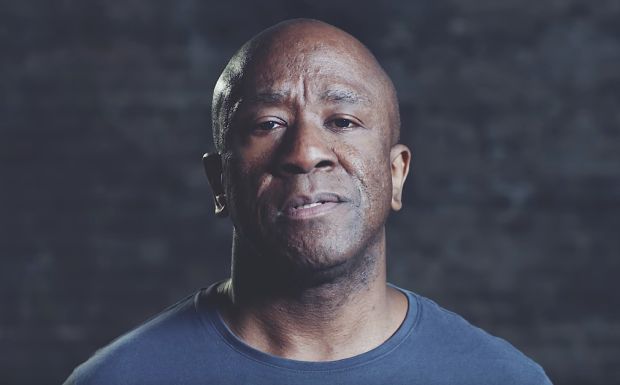Review: The Island (Southwark Playhouse)
The titular island in this piece from South African theatre master Athol Fugard and his long-term collaborators John Kani and Winston Ntshona, is Robben Island, the place where Nelson Mandela was held as a political prisoner for 18 years. I think it is fair to say it also refers to that line "No man is an island" from John Donne’s poem: human beings weren’t made to be isolated; they are deeply affected by their surroundings and their neighbours.
Essentially, then, this play – a beautiful two-hander originally performed by Ntshona and Kani in apartheid Cape Town in 1973 – is about oppression and imprisonment. It begins with the stark, heavy-hitting image of two inmates on opposite sides of the stage shoveling dirt. In a monotonous, Sisyphean routine they cancel each other’s work out – they shift earth onto each other’s piles, only to start the whole thing again.
It’s a very, very long scene in which performers Edward Dede and Mark Springer get more and more sweaty. At first it feels funny – it is ridiculous watching them saying nothing as they repeat their mimed actions – but as the actors buckle visibly under the weight of the work, the scene becomes very difficult to watch. This is hard labour in action and it is not a pretty thing.
The prisoners are John and Winston who share a cell together and when they are not laying low, working, or being beaten by the warders, John is trying to convince Winston to star in his prison production of Antigone, as the leading lady herself.
The premise is a true one – Mandela performed in Antigone while he was a prisoner on Robben Island – and it is used effectively here as a prism to explore the psychology of being locked up. When John finds out he is due to leave in only three months, we see the toll that takes on his cellmate Winston – who is serving a life sentence. We never hear about their crimes – they are only faintly alluded in the piece. Instead what we see is their dehuminsation: they are reduced to fawning, terrified prisoners in the face of their captors. The final moments – where they stage the trial scene in Antigone – is a demonstration of a quiet protest, of using theatre as a voice for change, but also as a means of expression – something, you could argue, is a human need.
John Terry’s production, which originally opened at the Dukes Lancaster, keeps things very simple and sticks to the original format, offering a bare, small stage with few props. Springer and Dede are very good, but there are moments – and this play is all about the little, exposing moments – which are lost. It’s a matter of missing timing and bad pacing which mean the piece doesn’t always hit home as hard as it should.
Still, the production shows The Island stands up as a political play in its own right, despite it being separated from its original context of apartheid South Africa. And that is perhaps both satisfying and deeply troubling in equal measure.
The Island runs at Southwark Playhouse until 24 June.











